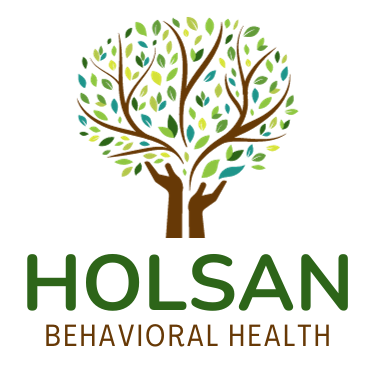6 Ways to Support Survivors of Sexual Assault
April is recognized as Sexual Assault Awareness Month (SAAM)—a time to raise awareness about sexual violence and how we, as a society, can better support survivors. Sexual assault is a deeply traumatic experience that affects millions of people across all ages, genders, and backgrounds. According to the Rape, Abuse & Incest National Network (RAINN), someone in the U.S. is sexually assaulted every 68 seconds.
While the effects of assault can be long-lasting, healing is possible—especially when survivors are surrounded by compassionate and informed support systems. Whether you’re a friend, family member, or professional, knowing how to respond appropriately can make all the difference in a survivor’s journey.
In this blog, we’ll explore 6 meaningful ways to support survivors of sexual assault, including where to turn for professional help.
1. Believe Them Without Judgment
One of the most powerful things you can do is simply believe the survivor. Doubting, questioning, or blaming them can cause more harm than the trauma itself. Survivors often fear they won’t be taken seriously—especially when the perpetrator is someone close or respected.
What to say:
“I believe you.”
“This wasn’t your fault.”
“You didn’t deserve this.”
These words validate the survivor’s experience and help rebuild trust in others.
2. Respect Their Pace and Choices
Healing from sexual trauma looks different for everyone. Some may want to talk right away; others may not be ready. Respect their autonomy by letting them lead the conversation and make their own decisions about next steps, such as reporting the assault or seeking therapy.
Avoid pushing them to “move on” or “forgive”—those are deeply personal decisions that take time.
3. Educate Yourself About Trauma
Understanding how trauma affects the brain and body helps you show up more effectively for survivors. Many experience symptoms of Post-Traumatic Stress Disorder (PTSD), anxiety, depression, and dissociation.
Learning about trauma responses (like freezing, memory gaps, or delayed reporting) can help you respond with compassion rather than confusion or frustration.
A trauma-informed approach recognizes:
- That survivors’ reactions are normal responses to abnormal events
- That safety, choice, and empowerment are essential for healing
4. Be Mindful of Triggers
Certain sounds, smells, places, or words can unintentionally bring a survivor back to the moment of the assault. Try to create a safe and supportive environment by being aware of potential triggers and checking in before discussing sensitive topics.
Ask, “Is it okay if I ask you something difficult?” or “Do you want to change the subject?”
5. Encourage Professional Support
While friends and family play an important role, licensed therapists and advocates are trained to help survivors process trauma in a safe, structured way.
At Holsan Behavioral Health, our clinicians provide trauma-informed, compassionate care tailored to each survivor’s unique journey. We offer a confidential space where survivors can work through their experiences, learn coping skills, and rebuild a sense of safety and control.
Whether through individual therapy, group counseling, or EMDR (Eye Movement Desensitization and Reprocessing), professional support can be life-changing.
6. Speak Up and Be an Advocate
Creating a culture that supports survivors means challenging harmful myths and standing up against sexual violence in all forms. This includes:
- Educating others about consent and boundaries
- Supporting survivor-centered policies
- Donating to or volunteering with local crisis centers or hotlines
Even small actions—like correcting misinformation or sharing a resource—can shift the narrative and make it safer for survivors to come forward.
Final Thoughts
Supporting survivors of sexual assault isn’t about having the perfect words—it’s about showing up with empathy, patience, and respect. Your presence can offer hope, strength, and the reminder that survivors are never alone.
If you or someone you know has experienced sexual assault, reach out for help. You deserve healing. You deserve support.
Visit Holsan Behavioral Health to learn more about our trauma-informed therapy services and how we can help.
Support Survivors of Sexual Assault
References:
- RAINN. (2024). Sexual Assault Statistics. https://www.rainn.org/statistics
- National Sexual Violence Resource Center. (2023). Sexual Assault Awareness Month. https://www.nsvrc.org/saam
- American Psychological Association. (2022). Understanding trauma and its impact. https://www.apa.org/topics/trauma
- 6 Ways to Support Survivors of Sexual Assault

